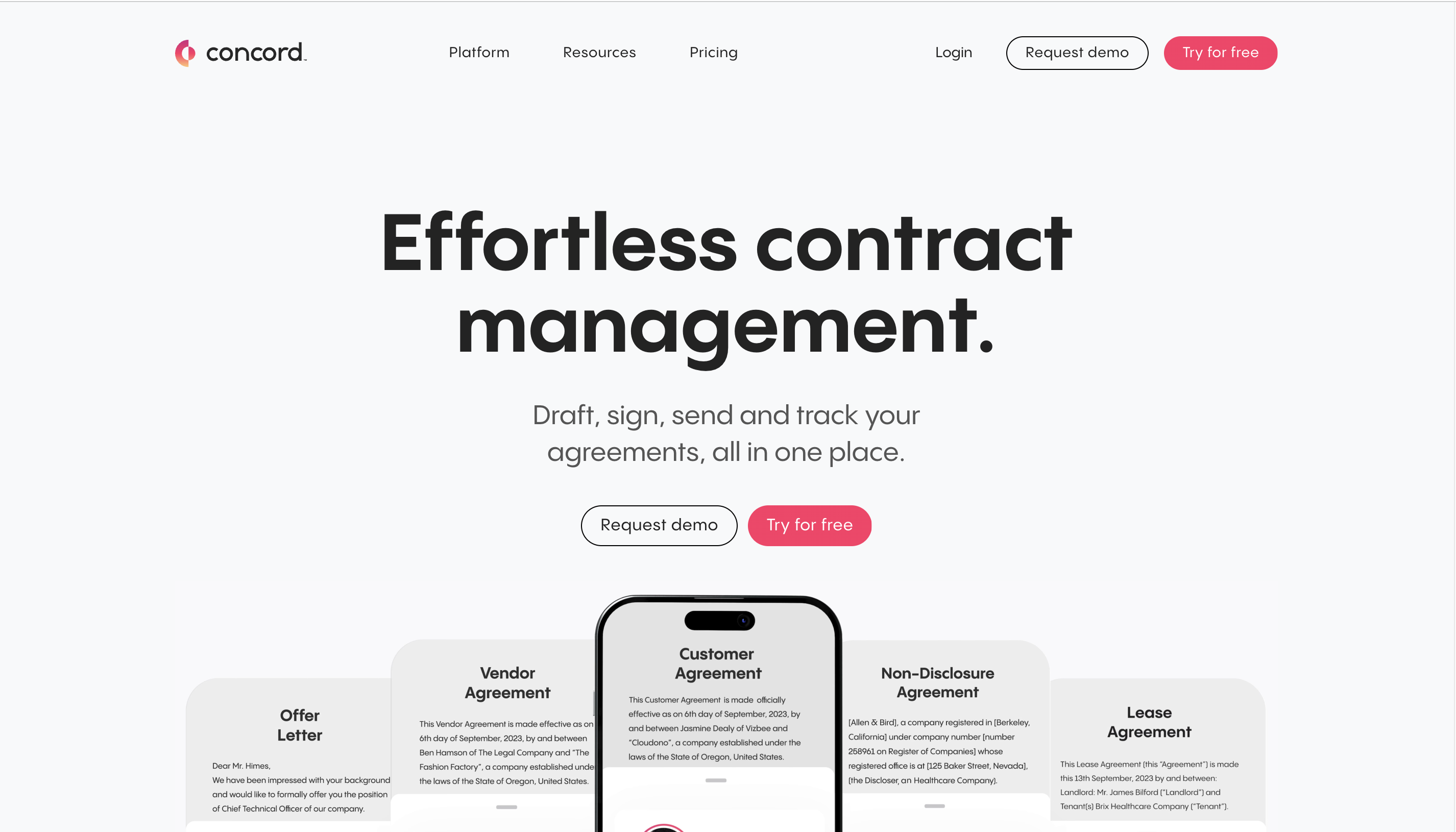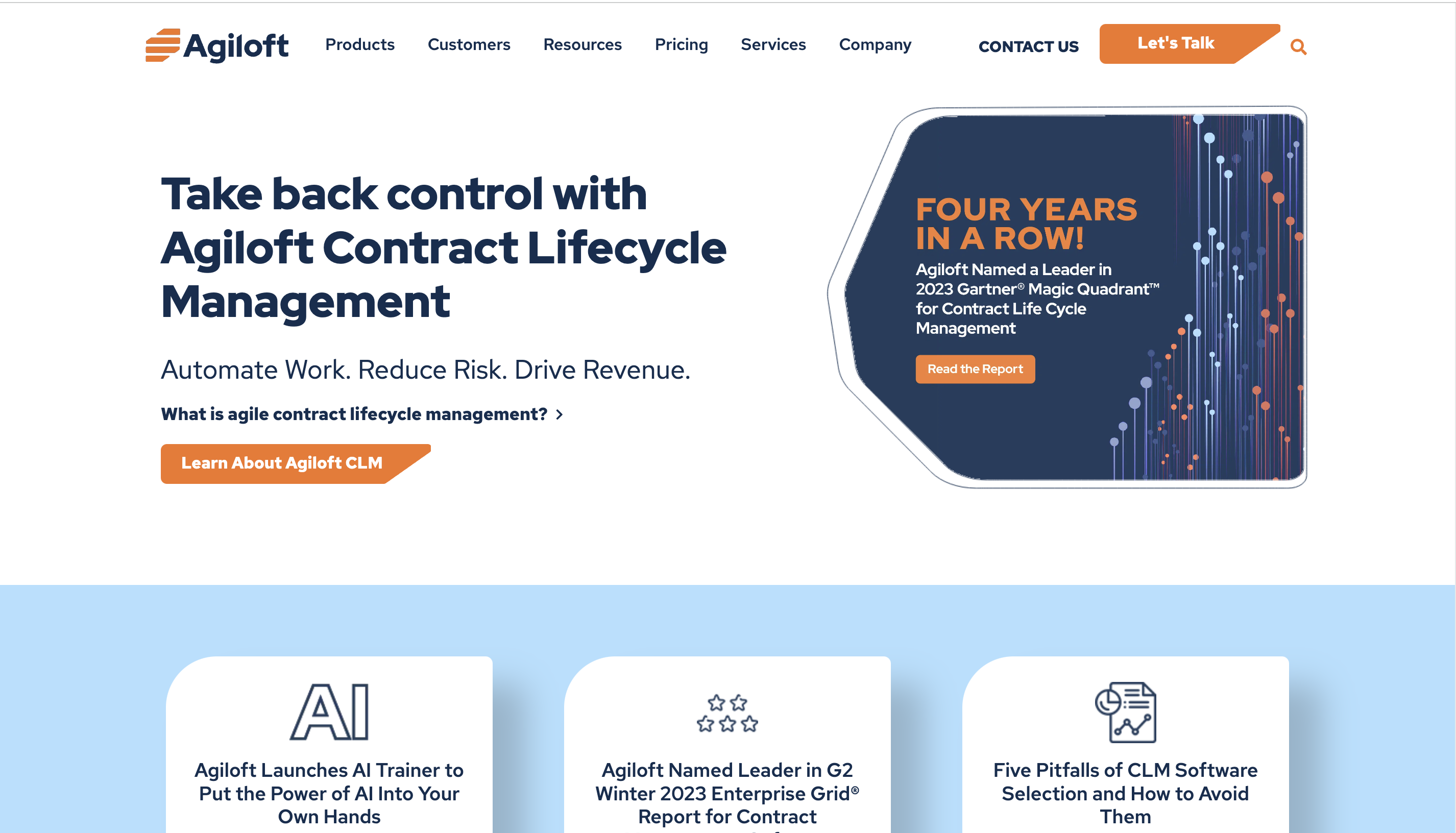Dealing with the intricacies of document lifecycle management and HIPAA compliance can seem daunting. However, understanding its significance and gaining knowledge about efficient execution is critical to safeguarding healthcare data.
This article seeks to simplify the complexities of selecting and implementing such solutions. We will examine the top five HIPAA-compliant document lifecycle management solutions. This will help you pick a robust and functional document management system that aligns perfectly with HIPAA regulations.
Top 5 HIPAA-Compliant Document Management Software Today
Symfact
Symfact stands out in contract management software due to its flexible and comprehensive features tailored for the healthcare industry. Its robust compliance management ensures adherence to HIPAA regulations, thereby mitigating risks associated with non-compliance.
Key Features:
- Customizable and intuitive interface. Symfact’s platform is designed for ease of use, with an intuitive interface that minimizes the learning curve. Moreover, it offers customizable templates that can be adapted to meet unique user needs.
- Automated alerts and real-time reporting. Symfact provides automated alerts to inform users about contract milestones, expiry dates, and other crucial details.
- Mobile compatibility. Symfact’s mobile-friendly web-based platform allows users to manage contracts anytime, anywhere.
Concord

Concord is an innovative software solution that streamlines the process of healthcare contract management. Its core focus is simplifying the entire contract lifecycle, from negotiation to renewal, while ensuring compliance with HIPAA.
Key Features:
- Robust security measures. The security measures featured in Concord offer a high level of protection for sensitive patient data. This reinforces trust among healthcare providers and ensures that Concord stands tall in data security.
- Budget-friendly platform. Starting at just $17 monthly, Concord offers a cost-effective solution for healthcare organizations.
- Automated processes. Concord’s ability to automate manual processes significantly reduces the time spent on contract management. This allows healthcare professionals to redirect their focus towards patient care.
Contract Logix
Contract Logix stands as a premier healthcare contract management solution designed with the primary aim of simplifying the intricacies of healthcare contracts. Its user-friendly interface and intelligent technology enhance team collaboration while ensuring strict adherence to HIPAA regulations.
Key Features:
- Effortless contract tracking. Contract Logix offers an advanced tracking system that simplifies monitoring contracts and ensures adherence to regulations. This minimizes potential contractual issues.
- Comprehensive audit trails. Contract Logix maintains a comprehensive audit trail for every contract. This ensures accountability and transparency, making tracking changes and updates made by different users easy.
- Contract request portal. Contract Logix provides a contract request portal, making initiating a contract request easy for any team member. This feature streamlines the contract initiation process and captures all necessary information immediately.
ContractWorks
ContractWorks offers a uniquely tailored solution for healthcare contract management. It stands out due to its focus on simplicity and ease of use, allowing healthcare organizations to concentrate more on delivering exceptional patient care.
Key Features:
- Customizable reporting. ContractWorks provides customizable reporting, allowing you to generate detailed reports based on user needs. This feature aids in making informed decisions and maintaining compliance.
- Contract templates. ContractWorks includes a library of customizable contract templates. This streamlines the contract creation process and ensures consistency across all contracts.
- Mobile compatibility. ContractWorks offers a mobile-friendly design, allowing healthcare professionals to review and manage contracts from smartphones or tablets.
Agiloft

Agiloft is a healthcare contract management software that offers a full-spectrum solution for the entire contract lifecycle. Its CLM software is known for its adaptability and can be tailored to fit the specific needs of different businesses or industries. This includes healthcare, finance, and technology, among others.
Key Features:
- Customizable modules. Agiloft offers prebuilt modules tailored to meet unique enterprise needs without writing custom code. This level of customization allows healthcare organizations to adapt the software to their specific processes and workflows.
- User-friendly interface. Despite its comprehensive features, Agiloft is known for its user-friendly interface. The software is intuitive and easy to navigate, reducing the learning curve and allowing users to leverage its capabilities quickly.
- Cost-effective solution. Agiloft offers flexible pricing options, making it a cost-effective solution for healthcare organizations of all sizes.
Features to Look for in HIPAA-Compliant Document Lifecycle Management
When selecting a HIPAA-compliant document lifecycle management solution, it’s important to consider several key features:
Security measures
The software should have robust security protocols to protect sensitive patient data. This includes encryption for data at rest and in transit, secure user authentication, and access controls.
Audit trails
The system should maintain detailed logs of all activities related to a document. This includes who accessed the document when it was accessed, and what actions were taken. These audit trails are crucial for demonstrating compliance during a HIPAA audit.
Data backup
In the event of a data loss, the system should have reliable backup and recovery mechanisms. This ensures that critical patient information can be quickly and easily restored.
Document control
The software should provide comprehensive document control features. These include version control, document expiration, and renewal reminders. It should also have automated document creation, review, and approval workflows.
Integration features
The software should integrate seamlessly with other systems used in your organization. This includes electronic health record (EHR) systems, practice management software, and billing systems.
Remember, the goal is to find a solution that meets your organization’s specific needs and helps you maintain compliance with HIPAA regulations.
Challenges in Document Management for Healthcare
Document management in healthcare presents several challenges, including:
Security of medical records
Securing medical records is a significant challenge in healthcare document management. These documents contain sensitive information that patients entrust to healthcare providers. Digital copies are susceptible to cyber-attacks, while physical documents are prone to theft or loss.
Storage and retrieval of medical records
Managing the storage and retrieval of vast volumes of digital healthcare documents presents another challenge. While digital records can be accessed from multiple locations, finding specific documents can be difficult without efficient indexing and search capabilities.
Keeping medical records current
Keeping digital records up-to-date is a vital issue. Medical records need constant updates. If the documents are not easily accessible or the updating process is complex, delays may occur.
Tracking medical records
Monitoring changes and edits to digital healthcare documents is also crucial. The system should track who made an update and when it was made. Digital document management systems offer this feature for better accountability and accuracy.
Integration challenges
Integrating a document management system with existing healthcare IT infrastructure can be complex and time-consuming. All systems must work seamlessly to ensure efficient workflow and accurate, up-to-date patient records.

HIPAA-Compliant Document Lifecycle Management System Implementation
Having a HIPAA compliant document lifecycle management software is crucial for healthcare organizations to safeguard the privacy and security of patient health information. This requires careful planning and execution. This starts from document creation through storage and use to eventual disposal.
Every stage must conform to the stringent regulations set by HIPAA. Therefore, adopting a robust digital document management system with advanced features is essential. The platform should have features like access controls, encryption, audit trails, and secure disposal methods.
Additionally, staff training is a crucial aspect of implementation. All personnel must understand the regulations and the system’s operation to maintain compliance and ensure efficient document management. Regular audits should also be conducted to identify and rectify potential breaches promptly.
By successfully implementing a HIPAA-compliant document lifecycle management system, healthcare organizations can significantly mitigate risks associated with data breaches. Doing this will ultimately enhance patient trust and meet regulatory requirements.




